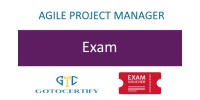Constant change in organizations – not least caused by Covid-19 – shows the need for standardized project processes that are optimized and repeatable.
However, focusing only on standardization means you might fail to adapt to what’s happening around you. This is why learning lessons from projects is vital.
The PRINCE2® principle – learn from experience – says that PRINCE2 project teams learn from experience by seeking, recording and acting upon lessons throughout the life of the project. In many organizations, lessons are often captured only after a project closes.
Collecting lessons from projects is so important – even in the pre-project phase – that it’s made me question and develop what we do in our organization so that our learning from experience process could span over the project lifecycle as recommended by PRINCE2.
The challenge of capturing and re-using project lessons
The sharp focus on delivery during a project, plus the interest in what comes next, makes it difficult to capture lessons learned. Finding time to reflect is rare and when a project ends, project managers move on to something new.
Equally, the problem of re-using lessons is how to make the process proactive, so it actually changes the way people work. Simply collecting lessons in a register and sharing them is too passive, but unfortunately this is what I’ve mostly seen during my career.
When I joined my current company, there was ambition but no process for lessons learned. It required a lot of discipline to create a simple process and demonstrate benefits to the team.
Classic lessons learned – post-project
To ensure our project lessons are captured and re-used post-project, we have developed a process that involves scheduled sessions.
We collect the lessons from everyone in the project team before the session and then review them in meeting lasting a maximum of two hours. This means everyone’s voice is heard via collecting the lessons individually but their commitment in time and effort is modest. We then agree on what is genuinely new knowledge by discussing only what has been submitted prior to the meeting and define actions for follow-up. I personally find long brainstorming-like sessions inefficient.
In fact, it is part of our objectives to achieve a certain number of lessons learned across the business and we are measured against this.
Maximising learning at the pre-project phase
In our business, one of the activities we do regularly is to change large portions of equipment in our aging solar plants, e.g., replacing solar panels for increased performance.
As these are primarily repeatable projects across different countries, we identify the same people to take the business mandate (which is consistent) and do the start-up phase in successive projects rather than relying on the individual project managers to start-up the project.
This way, the pre-project team naturally develop their lessons learned and re-use them constantly. As the start-up phase of a project tends to have a lot of unknowns, this group can organically improve its ability to make assumptions and forecasts based on minimal information. And, if the project progresses, we keep them informed with new lessons learned.
This approach has also helped in making assumptions when creating outline business cases and re-using them in other projects. For example, the knowledge has generated benefits beyond plant improvement to support the merger and acquisition of new plants.
Cross functional meetings for lessons learned
Acquiring solar power plants – with all the due diligence it involves – takes about six months. Now, even before the pre-project phase, we gather the whole team every quarter to make a comprehensive list of standard assumptions for each business function and review those we already have.
This allows us to use standard assumptions in a new project rather than asking people across a number of departments similar questions every time. It’s both a more efficient way of working and helps the interaction between the project team and various functions. As the discussion is focused on ideas and concepts rather than the pressures of a specific project, it’s much more relaxed. This process harvests additional learning that otherwise would be not captured.
My advice is to make it as easy and effortless as possible for project teams to capture lessons learned. And really focus on the benefits for them, the company and what everyone wants to achieve. Without question, it will pay off.
News by Andrea Vecchi – Head of PMO, Sonnedix








